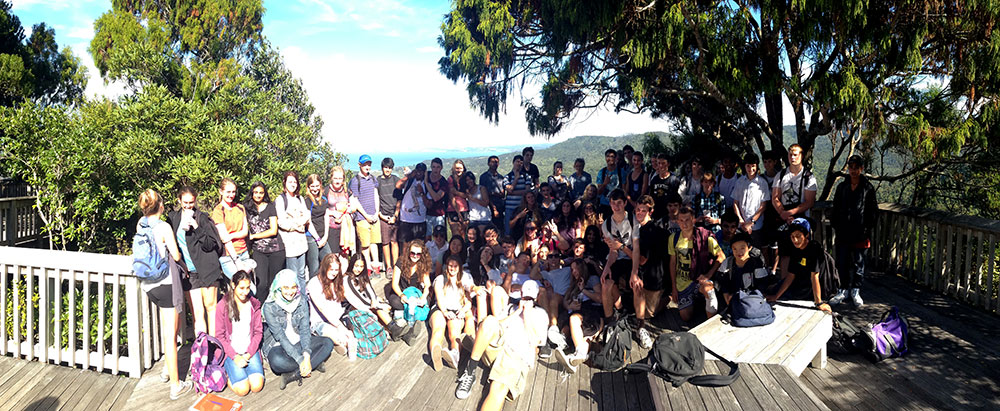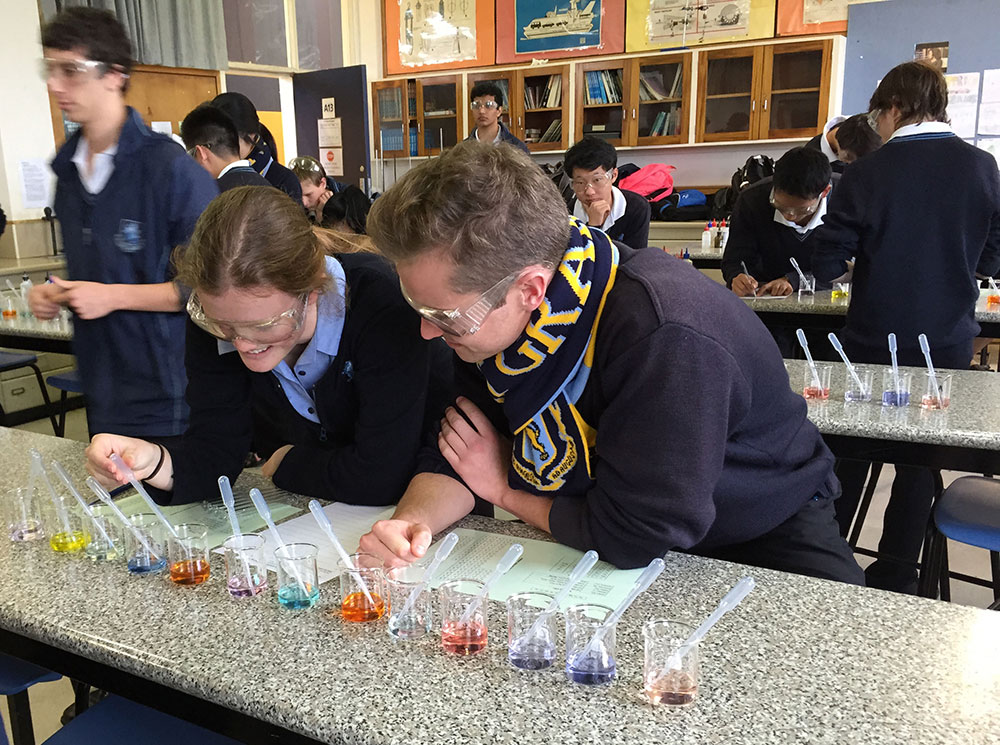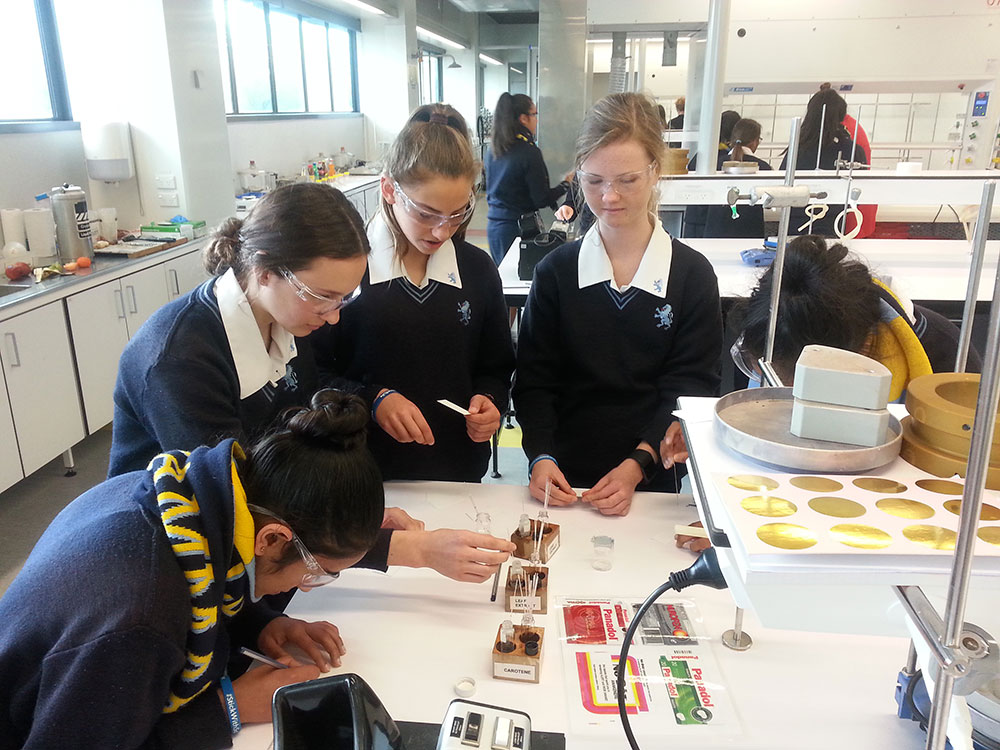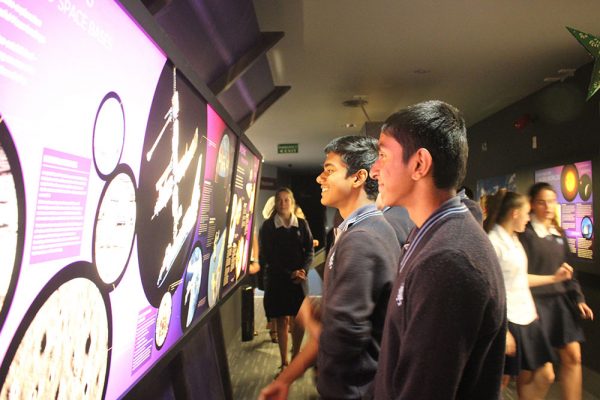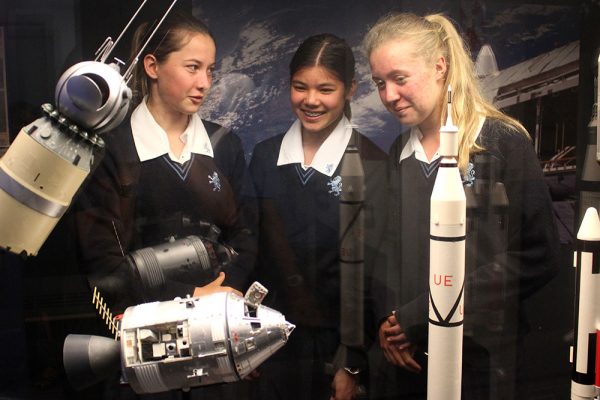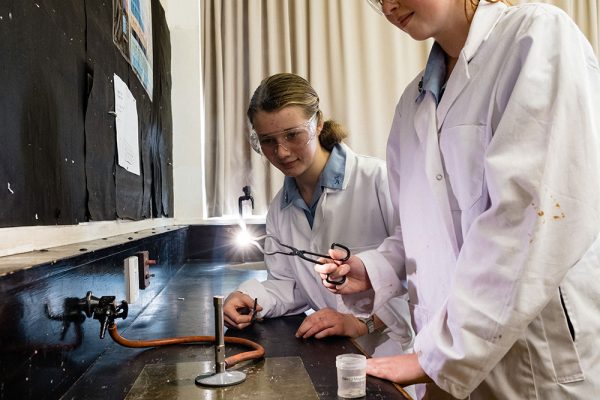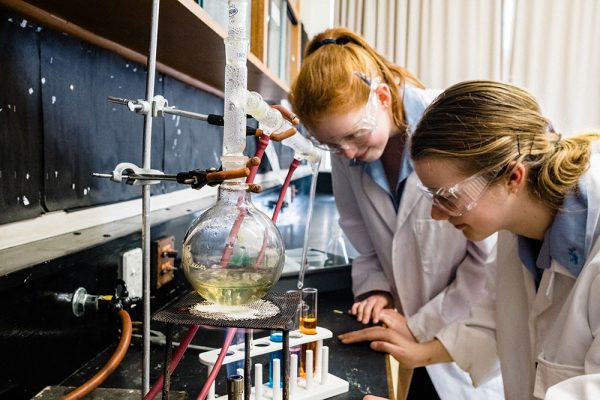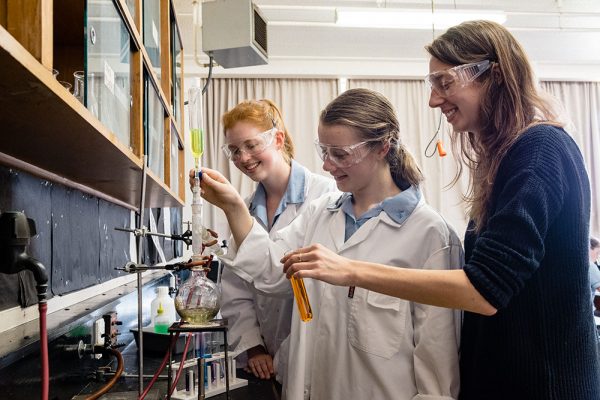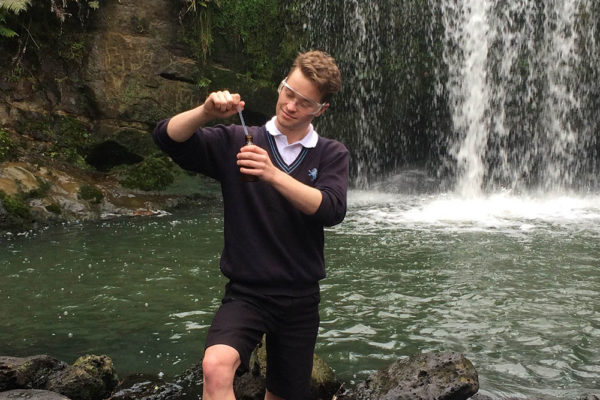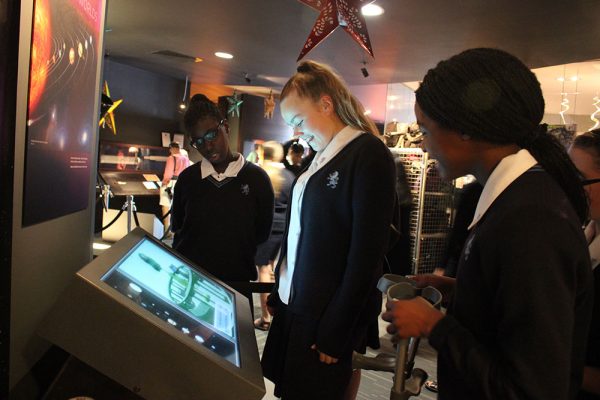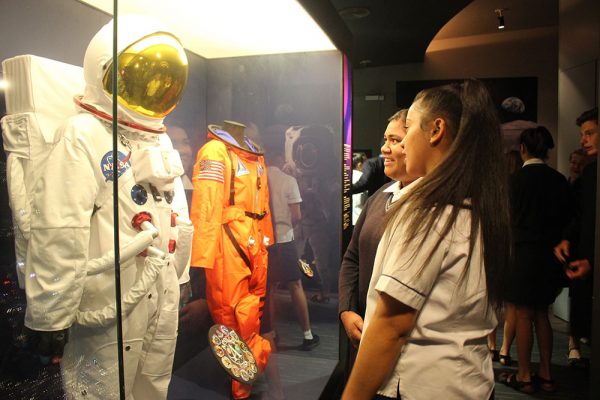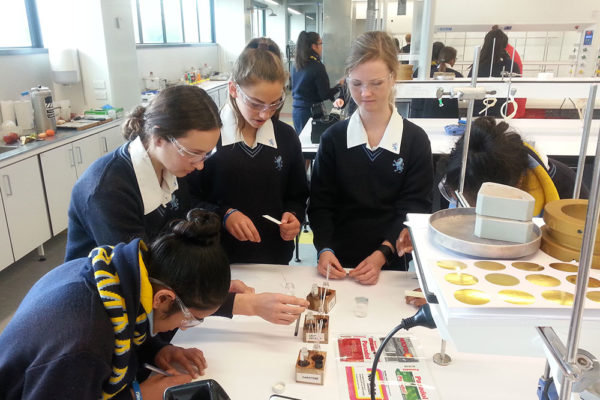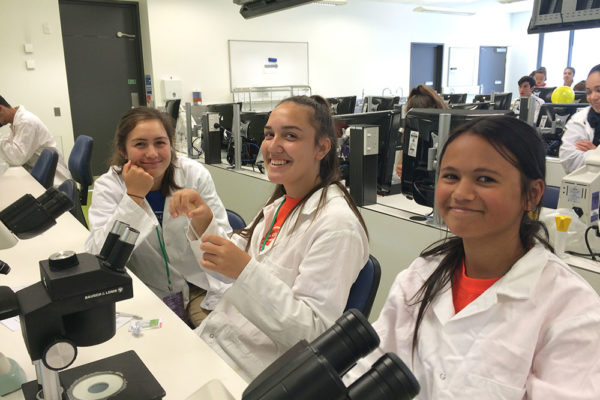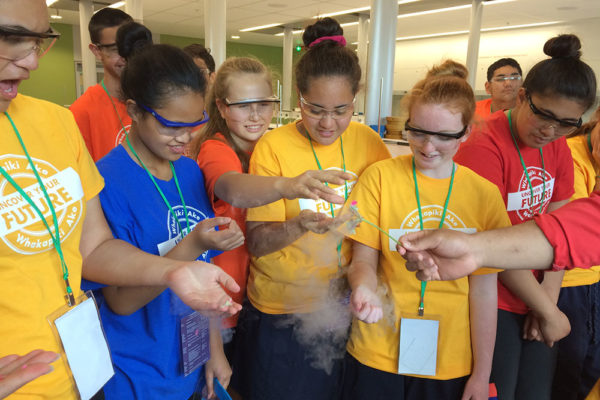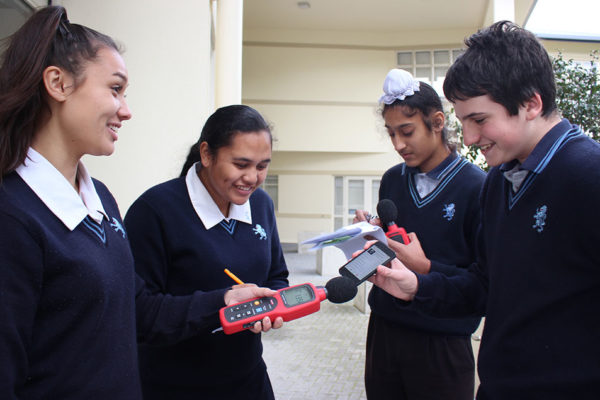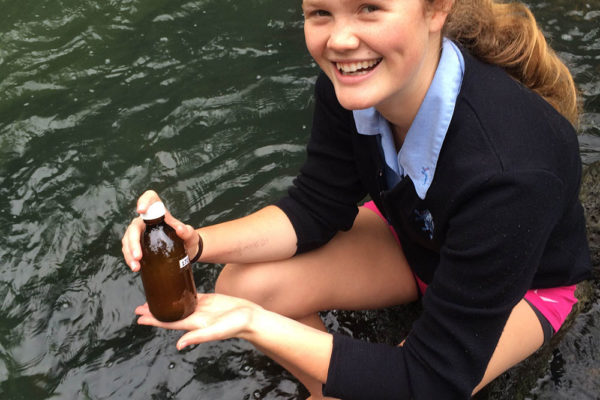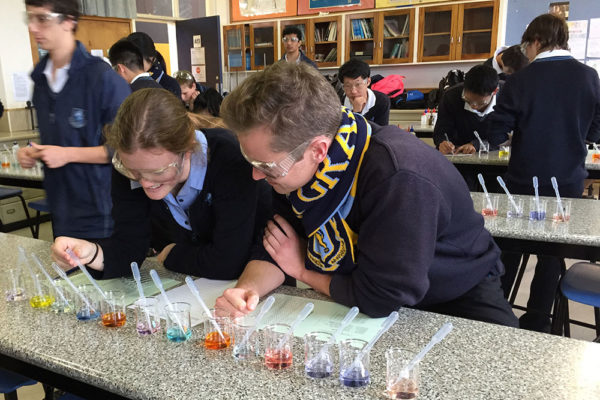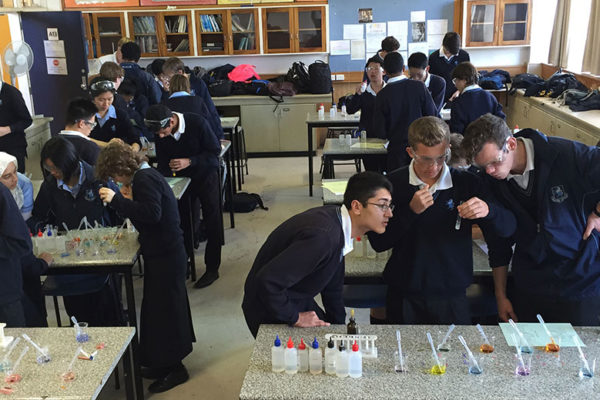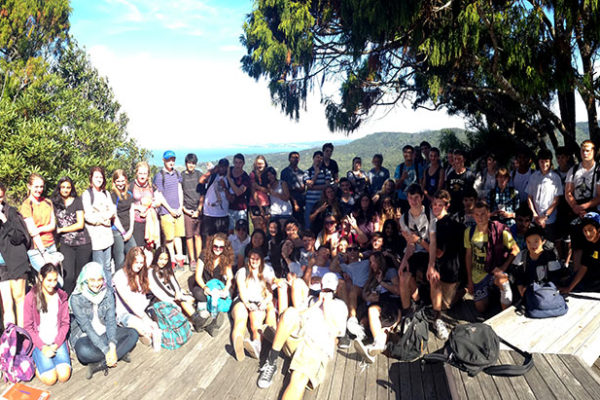Year 9 Science
In Biology students study ecology (animal and plant reproduction), cells and work with microscopes. Chemistry introduces them to atoms, particles (different types and how they interact), the Periodic Table and gets them doing hands-on experiments to test chemical reactions. In Physics they start to learn about energy and the behaviour of waves.
Year 10 Science
In Biology students look at genetics and natural selection; Chemistry takes a closer look at the Periodic Table and more specific reactions, and introduces acids and bases with Ph testing of common household products. In Physics, students start to learn about electricity, forces and motion.
Biology
Year 11 – NCEA Level 1
Students take their early learning further with more focused topics on plants and animals, genetics, and experiments looking at diseases and antibiotic resistance.
Year 12 – NCEA Level 2
At this level they “dig into the smaller stuff”, studying cells in more detail, genetic variation and gene expression, ie, why DNA produces unique individuals.
Year 13 – NCEA Level 3
Students look at how new species form, human evolution and plant and animal behaviours.
Career pathways
Marine ecology, conservation, resource management, border security, food technology, patent law, biotechnology, genetic engineering, fertility, nursing, physiotherapy, midwifery, biotechnology, drug development, cancer research
Chemistry
Year 11 – NCEA Level 1
Earlier learning in chemical reactions and acids and bases is extended. Students also study carbon chemistry, including that relating to diamond, graphite and organic fuels.
Year 12 – NCEA Level 2
Students look at the bonding and structure of different types of particles, different types of chemical reactions, and organic chemistry.
Year 13 – NCEA Level 3
The structure of atoms from the Periodic Table and their interaction with other atoms is analysed, study done on the making of organic compounds such as pharmaceuticals, and aqueous chemistry looks at acids and bases in more detail.
Career pathways
Medicine, veterinary science, pharmacy, nursing, laboratory work, pharmaceutical development, new fuel development, cosmetics, resource management, engineering, environmental monitoring, drug development, cancer research
Physics
Year 11 – NCEA Level 1
Students gain a good foundation to launch into the more challenging NCEA Level 2 content. Mechanics explores the nature of linear motion, forces, pressure, work, power and energy. The Waves topic explores the nature of light and sound, expanding on the knowledge and skills gained from the Junior science course. The Electricity & Magnetism topic explores the nature of Static Electricity, DC Electricity and Electromagnetism. The Heat topic explores the nature of heat & temperature as well as the method of heat transfer (conduction, convection and radiation). Students also complete an investigation to discover a linear mathematical relationship between two variables.
Year 12 – NCEA Level 2
Mechanics topic explores the nature of motion (linear, circular, projectile etc), forces, momentum and energy. The Waves topic explores the nature of light and sound in greater detail, including reflection and refraction (including total internal reflection), diffraction and two-point source interference. Electricity & Magnetism explores the nature of Static Electricity, DC Electricity and Electromagnetism. Nuclear Physics is introduced at this level, replacing Heat. It explores the nature of atomic models, half-life, fission and fusion reactions, radiation and nuclear energy. Students also complete an investigation to discover a non-linear mathematical relationship between two variables.
Year 13 – NCEA Level 3
Arguably one of the more academically challenging courses available under than NCEA system,
Mechanical Systems explores the nature of Translational Motion, Circular Motion & Gravity, Rotational systems and Oscillating Systems. Waves explores the nature of interference patterns, standing waves and the Doppler Effect. Electrical Systems explores the nature of capacitors, inductors and AC circuits. The Modern Physics topic looks at atomic models, the photoelectric effect, wave-particle duality, mass-energy equivalence, as well as a brief introduction into special and general relativity, plus the nature of quarks and leptons. We also use our Physics knowledge to develop an informed response to a socio-scientific issue.
Career pathways
Please visit http://www.futureintech.org.nz/30/subjects/physics for an extensive list of possible employment opportunities for students with a Physics background.
Earth & Space Science
This subject can be picked up at Level 2 or Level 3 as each year’s study is self-contained. Ideally the student would have taken one of the other sciences previously, but if not, good grades in other subjects is the only pre-requisite.
Year 12 – NCEA Level 2
Students look at New Zealand’s tectonic structure, why it moves and the effects of its movement – earthquakes, tsunami, volcanic eruption. They then turn their study skyward, looking at the formation of stars, planets and solar systems, and their long-term fate. Investigations may look at how different sized meteors create impact craters on earth.
Year 13 – NCEA Level 3
This level studies the earth’s atmosphere in relation to global warming and pollution, and the oceans in relation to the El Nino and La Nina weather patterns, giant mid-ocean rubbish patches and the melting of the ice caps. The Space component looks at the possibility of travelling to other planets, finding life there and establishing human life on them.
Career pathways
Seismology, resource consent, marine ecology, conservation, aerospace, resource extraction (eg, mining, oil drilling), meteorology, climate study, volcanology, engineer
Scholarship
Biology, Chemistry, Physics and Earth & Space Science may all be taken at Scholarship level by students who are highly academic. Scholarship exams or projects require students to draw from their web of knowledge and use multiple resources to investigate a topic in great depth and with lateral, independent thinking. Extra tutorials are offered through the year for students preparing for Scholarship.
Agricultural and Horticultural Science
This subject comes under the auspices of the Science faculty, although is often considered separately. Please click here to find out more about Agricultural and Horticultural Science

